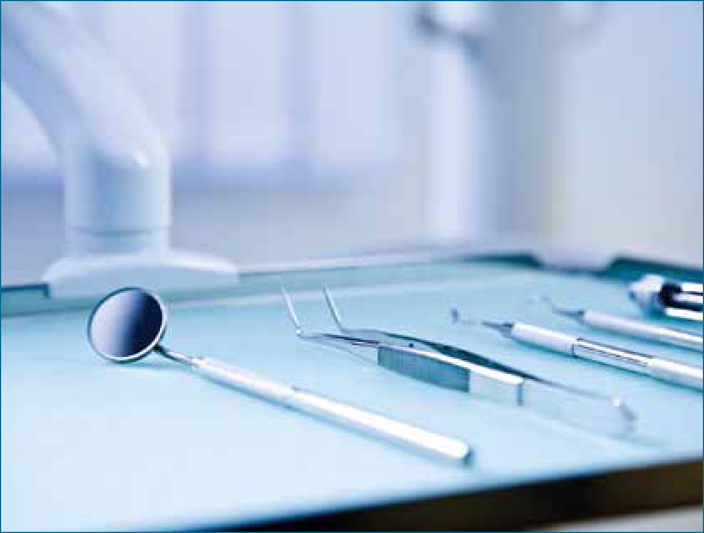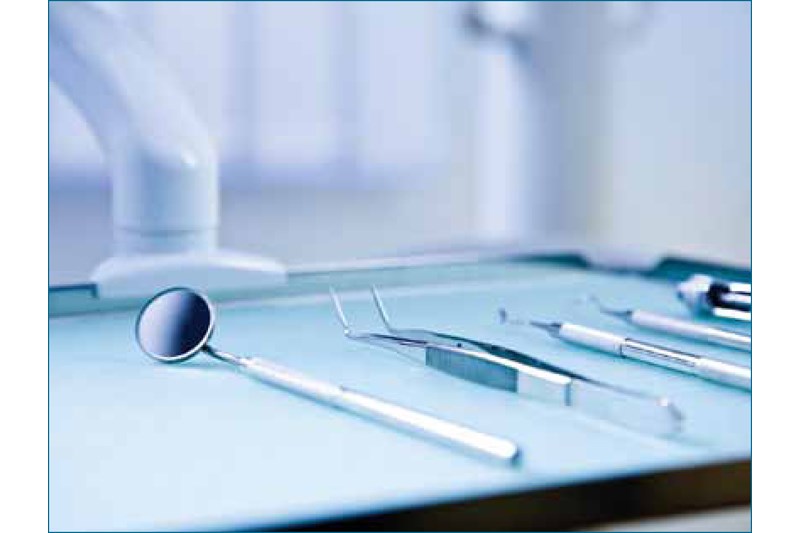Provision of dental care within a secure setting
Published: 02/06/2014
The demand for dental care in secure settings is rising in conjunction with a steady rise in the overall prison population. Patients often have a history of drug-taking and alcohol abuse, underlying poor nutrition and heavy smoking. Maintaining good oral health is, therefore, a challenge
The demand for dental care in secure settings is rising. In April 2010, the Prison Reform Trust (2010) reported that for the first time there were in excess of 85 000 people in custody. The prisoner profile is a familiar one across the UK; prisoners are mainly from deprived backgrounds with low literacy and educational attainment, often with a history of drug-taking and alcohol abuse, underlying poor nutrition and heavy smoking (British Dental Association, 2012).
The nature of the prison environment makes the delivery of care as equally challenging as the oral health of the patients. The population present with incredibly high needs and there is a high number of emergency and urgent cases; however, access or following through with care as a prisoner is not always easy.
The aim of this article is to give a brief overview of providing dental care in a secure setting.
Background
I have been working at HMP Styal (Cheshire) for almost a year now. HMP Styal is a women's prison and youth offending institute. It also houses a mother and baby unit. A high percentage of women who are serving a sentence have drug and alcohol issues. Intervention is addressed through dedicated programmes, which allow women to understand how drug and alcohol addiction impacts on their own lives and those around them. Equally, mental health issues affect a number of the prisoners. Low self-esteem has an impact on the individual's oral health; therefore, we need to ensure that our services are personalised to each individual's needs.
Training and background checks
Necessary training and checks are undertaken by the prison, prior to being employed. First and foremost, a Disclosure and Barring Service (DBS) check is required; this has now superseded the enhanced Criminal Records Bureau (CRB) check.
Once the DBS Disclosure application process has been completed, a candidate will receive a copy of their DBS Disclosure certificate. Following this, the formal prison vetting will commence; this is an online process, which can take several weeks.
After successfully completing a vetting process, the candidate is required to attend several in-house training sessions before a personal key tally for a set of keys is issued. This includes specific training on the use of keys, personal safety as well as signing the Official Secrets Act.
Patient wellbeing
The patient's wellbeing is given top priority throughout the care process, and both the patient's physical and mental health is constantly monitored.
When each patient attends for a dental appointment, they are asked to complete a medical questionnaire about smoking, alcohol and drug use. This is an opportunity for the dental professional to not only talk to the patient about using the available dental services, but to gain their trust and help them move towards a healthier lifestyle. Gaining trust from prisoners is often challenging, as past experiences can often mean many failed appointments and emergency treatment prior to moving forward and succeeding in the improvement of the individual's oral health. We often have to make mental health referrals and collaborate jointly with the other healthcare teams working within the health centre at HMP Styal.
Many of the prisoners have suffered domestic violence at some point in their lives. In addition, they are often homeless and, as such, simple things like toothbrushes and toothpaste are not a top priority. As a consequence, their oral health, teeth and general self-esteem are well below the average individual who attends a regular dental practice. In most cases, patients need extractions and dentures.
Providing dental services in a prison environment presents dental professionals with many unique challenges, including concerns about threats to personal security, inability to move freely, and the requirements to deliver modern dental services in an environment that, in many cases, requires modernisation. Much of what is taken for granted in high street practices may be difficult to implement.
Toothbrush exchange
Prisons will provide basic toothpaste (containing fluoride) and a standard issue toothbrush. The toothbrush, however, is often far too big, and so we offer a ‘toothbrush exchange’ system, where prisoners are allowed to swap their old toothbrush with a more appropriate one at a pre-arranged session. Further supplies of regular toothbrushes can be bought from the ‘canteen list’.
The treatment room
The dental surgery is, in the main, very much as per the general dental high street practice. We have a separate attached decontamination room for the sterilisation of instruments and instrument storage, where very similar daily audits are performed as in general dental practice. Equally, clinical waste and sharps are collected and stored, as per HTM 01-05.
A full range of equipment is available in the surgery setting, including a computerised system and digital x-ray facilities. The team is fortunate to have a team of dental nurses who have extra post-qualifications, which ensures that patient waiting times are limited and an efficient service is given to the patients. Post-qualifications include radiography, oral health, application of fluoride varnish and impression taking.
Due to time constraints within the prison environment, it is understandable that the ‘did not attend’ (DNA) rates are somewhat high. This is due to much purposeful activity, such as education and family visits. Treatment is therefore available on a daily basis within HMP Styal using an appointment system. The team remain flexible in their approach to treating patients as there are other pressures and activities within the prison that can delay procedures; however, the good partnership working ensures that these are always kept to a minimum as health care is a priority in the setting.

Dental instruments, which are counted after every patient, are kept well out of reach of the prisoners
Policy adherence
Prisoners are disproportionately affected by multiple health problems, including HIV, other sexually transmitted infections (STIs), tuberculosis (TB), and viral hepatitis. As such, compliance with HTM 01-05 is paramount. We audit our compliance with Infection Prevention Society (IPS) standards every three months. We also complete in-house spot checks and peer reviews in between these audits. Any shortfalls in processes or policies are notified immediately to the Governor of Health Care and the Head of Health for Spectrum.
The dental service is monitored by key performance indicators (KPIs) on a monthly basis. This ensures all areas of performance run at their best.
Patient turnaround can vary on a daily/weekly basis, hence the same standard of service needs to be given to all patients. We have a set policy in place to ensure that each patient is provided with the same standard of care.
Patient information
Prisoners are informed of the services we provide both at an initial meeting and via a patient information leaflet. Assistance is also available to book an appointment and complete a medical history, given that a high percentage of prisoners are unable to read and a small percentage unable to write.
sec-type="conclusions">Conclusion
As a team, we strive to make a ‘real difference’ to patients' lives, the prison staff and the healthcare team. We ensure that each patient is treated professionally, has their own care plan, and that their needs are dealt with in a confidential and empathetic manner.
We all immensely enjoy our roles within the prison setting. Each day is unique, full of challenges and immensely rewarding. Small steps make huge differences within this type of establishment.
position="float" orientation="portrait">Key Points
? The dental health needs of prisoners differ from those of the general population, with a high number of emergency and urgent cases, increased levels of neglect of oral care among prisoners, high rates of substance misuse and smoking and underlying poor nutrition.
? Prisoners vary in their ability and motivation to take care of their own oral health, often entering prison with a previously chaotic lifestyle.
? Prison dental professionals should recognise the importance of and deliver effective oral health promotion in the prison setting.
Author: MA Healthcare













